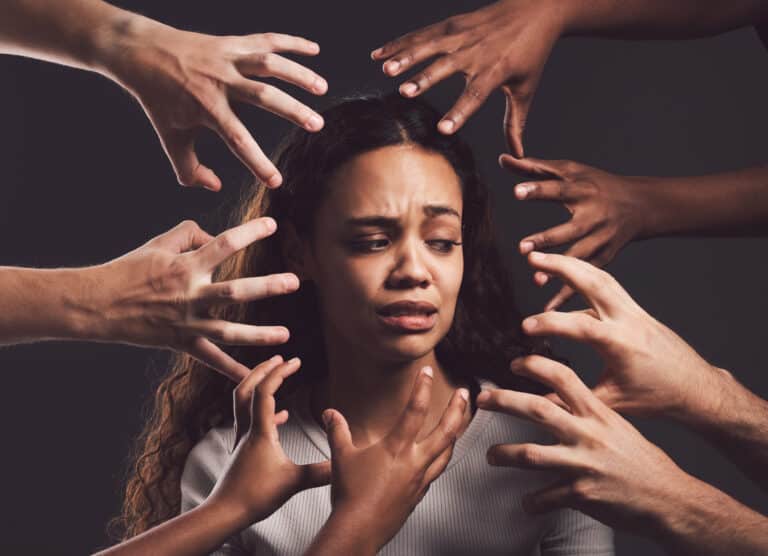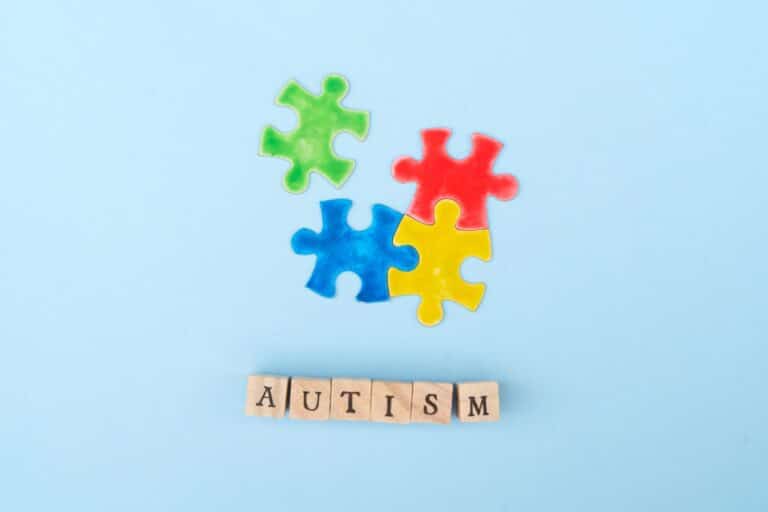The holiday season frequently brings much more than joy and peace. It often carries a wide range of demands like shopping, cooking, baking, entertaining, unwelcome guests, and cleaning, among various other things. It’s no wonder it can also bring on stress and depression.
Innovations in Clinical Neuroscience published research showing that the holiday season is substantially linked with worsening moods and increased alcohol-related fatalities.¹ This suggests that holiday joy isn’t making up for the mental health challenges many faces during the holiday season.
Individuals struggling with addiction often find the holidays the most challenging time of the season. It’s easier for them to face more triggers that lead them to use drugs or alcohol more, according to the CDC.²
Holiday Depression
Holidays should be a time of celebration and joy, but for some individuals, they’re anything but this. Individuals can experience depression at any time of the year. Still, the anxiety and stress during the November and December months can often lead to even those people who are typically content feeling a lack of fulfillment and experiencing loneliness. In fact, around 14% of people in the U.S. experience the “winter blues.”³
There are a couple of reasons why an individual may experience depression during the holiday season. These are:
Social Isolation
This is a massive predictor of depression, particularly during the holiday season. Some individuals may lack socialization opportunities, or they may only have a small circle of social influence. Those who feel disconnected frequently avoid social interactions during the holiday season.
Sadly, withdrawing often worsens those symptoms of depression and feelings of loneliness. These people may see other individuals spending time with family and friends and wonder why it can’t be them or why everyone else is so much happier than they are.
One ideal way to deal with social isolation is to reach out to family and friends for support. Individuals can also talk with a therapist to help them determine what is causing their feelings and come up with solutions to overcome them.
Grieving
Another reason for experiencing depression during the holidays is grieving during the holidays. Some individuals may be very much reminded of the loss of a loved one during the holidays, and this can trigger symptoms of depression.
Seasonal Depression
This form of depression relates to seasonal changes. It generally starts and ends at approximately the same time each year. In individuals who struggle with seasonal depression (also called a seasonal affective disorder or SAD), the combination of darker days, colder weather, and heightened pressure to socialize can spell trouble for them.
The December holidays aren’t usually a time of cheer and joy for those with SAD. In fact, according to a National Alliance on Mental Illness small survey, around 64% of individuals with a mental health disorder like SAD state that their symptoms worsen during the holiday season.⁴
For most individuals with SAD, in the late fall or early winter, their symptoms ramp up. This is when the weather becomes colder and the days shorter. And, according to the National Institute of Mental Health, their symptoms often don’t lighten up until springtime.⁵
Plus, since the social withdrawal is a common SAD symptom, the condition can be even harder to deal with during the holiday season. While the holiday season is supposed to be a time to spend time with family and friends and celebrate, there’s a lot of pressure to plan and be part of social gatherings.
What’s more, a lot of individuals with seasonal depression feel like they have very minimal energy to get them through their day. That can be particularly hard during the holidays when an individual’s to-do list can feel over a mile long. For those dealing with seasonal depression, it can be challenging as they may not have motivation, energy, or even interest during the holiday season.
Holiday Depression and Substance Abuse
There’s a strong connection between depression and substance use.⁶ Alcohol is a depressant that first impacts a person’s central nervous system, working like a stimulant initially.
But, it then produces more intense feels of:
- Drowsiness
- Lethargy
- Depression
Substance use also impairs inhibition and judgment and increases the risk of suicide. In individuals with SAD, alcohol can aggravate their symptoms of depression, making their condition worse.
Fall and winter are often stressful times situationally and environmentally for individuals who abuse substances and have a co-occurring mental health illness. When the months get darker, those with seasonal depression have higher risks.
For example, they may experience boredom because of the limited outdoor activity due to inclement weather. This can trigger a desire to use substances or consume alcohol to remove this boredom. The colder weather may bring on pain for some, and they turn to alcohol or substances to relieve it. Holidays may bring on negative memories.
Symptoms of co-occurring mental health conditions and addiction frequently overlap. In the end, a mental health condition, such as depression, that occurs alongside addiction or substance abuse can only be determined and diagnosed by a doctor and a professional behavioral health specialist.
Like those at Southern California Sunrise, who may recommend a progressive detox program to help rid the person’s body of the substances they’re addicted to followed by inpatient treatment where they can continue their treatment plan for both their substance use disorder and co-occurring depression or other mental health disorder.
Common Triggers
Common triggers of seasonal holiday depression can include:
1. Overeating
When things begin getting stressful, and it becomes harder to handle emotions during the holiday season, many individuals turn to “emotional eating” to help ease their overwhelming feelings of stress and anxiety. However, instead of helping them, this unhealthy habit worsens their anxiety symptoms. One study the Loma Linda University School of Medicine conducted showed that consuming a diet that’s high in saturated fat (the typical diet during the holidays) can cause alterations in an individual’s brain that make them more susceptible to anxiety and fear.⁷
And, since the holidays are typically loaded with fattening foods like cookies, cakes, and pies that encourage insecurity, people who engage in emotional eating will experience much more than the average anxiety. What they experience can often turn into full-blown holiday depression.
2. Money Concerns
A lack of money has long been linked with various mental disorders. The journal World Psychiatry published a meta-analysis showing a “statistically substantial positive relationship between the risk of depression and income inequality.”⁸
Money woes are especially present during the holiday season, thanks to things like:
- Expensive dinners
- Pricey presents
- Holiday party outfits
More often than not, these types of things can cause depressive episodes that can seriously damper a person’s holiday cheer.
3. Shopping for Gifts
Shopping for presents is a big trigger for holiday depression between the crowds of people and attempting to manage expenses. Gift-buying and shopping can lead to emotional and financial stress and can create a need to manage:
- Traffic
- Crowds
- Large stores or malls
It can bring on a lot of undue stress and anxiety.
4. Family Gatherings
While spending time with family should be a stress-free and fun experience, almost everyone who has sat around a table with their family and relatives knows this can be the furthest thing from a relaxing experience. One thing that often triggers holiday depression is family stress, especially when people frequently spend far more time with family, in some cases, including relatives and family members they typically wouldn’t choose to spend time with.
5. Overexertion
Many individual’s sleep habits change during the holiday season as they:
- Stay up later
- Go out to parties
- Get less sleep
These sleep pattern changes, especially getting less or less predictable sleep, can make individuals more susceptible to feeling depressed, or it can make their current depression worse.
What to Do in Case of Seasonal Depression?
When a person is experiencing stress at its peak, it can be challenging to stop and regroup. The best thing for them to do is to try and prevent depression and stress from occurring in the first place, particularly if the holidays have already taken an emotional toll on them in the past.
Some ways to help prevent seasonal depression include:
1. Acknowledge their Feelings
If a person close to the individual has recently passed away or can’t be with their loved ones for certain reasons, they should understand that it’s normal to feel grief and sadness. It is okay for them to take some time out to experience these feelings and allow themselves time to cry or express their feelings. Just because it’s the holiday season doesn’t mean they must force themselves to be filled with joy and happiness.
2. Reach Out
If someone feels isolated or lonely, they should seek out a community or other social events. There are even online resources they can attend, such as:
- Social media sites
- Online support groups
- Virtual events
These can provide them with companionship, comfort, and support when they can’t connect with other people socially.
If a person is feeling holiday-related stress, it can also help them reach out to a family member or friend to talk about their concerns, whether through a call, text, or video chat.
3. Be Realistic
The holiday season doesn’t have to be perfect or like it was the year before. Rituals and traditions often change as families grow and change. Individuals can choose a couple of traditions to hold on to and create new ones.
For instance, if a person has adult kids or other relatives that can’t come to their home this holiday season, they can find new ways to celebrate the holidays together, such as sharing videos, emails, or pictures.
4. Set Differences Aside
Individuals should try to accept their friends and family as they are, even if they’re not living up to their expectations. They should set any grievances aside until a more appropriate time for discussion. They should understand if other people become distressed or upset when something doesn’t work out. There’s a good chance they’re feeling the effects of holiday depression and stress too.
5. Stick to a Budget
Before doing their food and gift shopping, individuals should decide how much they can afford to spend. Then, they need to stick to this budget they create for themselves. They should only try to buy happiness by buying a few gifts. Instead, maybe they can try these alternatives:
- Give homemade gifts
- Donate to a charity in another person’s name
- Begin a family gift exchange
These are great ways to “give” without buying expensive presents.
6. Plan Ahead
Individuals should set certain days aside for:
- Baking
- Connecting with friends
- Shopping
- Other activities
They should consider whether shopping online for any of their items would be better. They should plan their holiday menu and then create their shopping list. This can help them prevent that last-minute scramble of going out and purchasing forgotten ingredients. They’ll also want to line up some help for things like meal preparation and cleanup.
7. Learn to Tell Others No
When individuals say yes when they know they should have said no, it can leave them feeling overwhelmed and resentful. Colleagues and friends will understand if they can only participate in some activities or projects. If they can’t say no (i.e., their boss asks them to work overtime), they should try to take something else off their agenda to make up for the time lost.
8. Don’t Forget About Healthy Habits
It’s vital that individuals don’t allow the holidays to sabotage their healthy habits. Overindulging will only add to a person’s guilt and stress.
Instead, try these suggestions:
- Eat healthy meals
- Eat a healthy snack before a holiday meal to keep from going overboard on cheese, sweets, and beverages
- Get plenty of sleep
- Try deep-breathing exercises, yoga, and meditation
- Engage in routine physical activity daily
- Avoid excessive alcohol, tobacco, and drug use
- Limit the time spent watching the news and engaging on social media (information culture can lead to undue stress)
9. Take a Breather
It’s essential individuals make time for themselves and indulge in activities they enjoy. They need to take breaks now and then. They should spend 15 minutes of alone time, without distractions, to allow themselves to regroup and refresh, so they can handle everything they have on their to-do list. The best way to take advantage of this break time is by engaging in slow breathing exercises or other calming activities that help reduce stress, clear the mind and restore the individual’s inner calm.
Some ideas might include the following:
- Meditation
- Reading a book
- Taking a walk at night to stargaze
- Deep breathing
- Listening to calming and soothing music
Any of these are good; individuals only require about 15 minutes or so to feel ready to tackle the rest of their list of activities they need to get to.
10. Seek Professional Help if Required
Despite their best efforts, many individuals still find themselves:
- Plagued by physical complaints
- Feeling persistently anxious or blue
- Hopeless and irritable
- Unable to sleep
- Unable to face routine chores
When individuals experience these persistent feelings that won’t disappear, it may be time for them to seek professional mental health help.
Treatment for Depression
Although the holiday blues are typically short-term, it can still help to see a mental health specialist. The therapist can work with the individual to identify negative thinking patterns contributing to their feelings of sadness and depression and help them replace these negative thoughts with more helpful ones. This approach is referred to as cognitive behavioral therapy.
Therapy can also help individuals develop better:
- Communication
- Stress management
- Relationship skills
It can be helpful in both short-term and long-term situations.
As mentioned, depression and addiction, or SAD, go hand in hand. Almost a third of individuals who are clinically depressed are also engaging in alcohol or drug abuse. Substance abuse can frequently be a form of self-medication for people struggling with a mental health condition like depression. Fortunately, a dual-diagnosis treatment plan offered through Southern California Sunrise can help treat co-occurring disorders and get the individual back on the right path to quality living.
The thing about depression and addiction treatment is that it needs to be tailored so that both conditions are treated. One can’t be treated without the treatment of the other. For instance, if an individual’s depression is treated, but not their addiction, then their addiction will most likely lead to them relapsing into their depression and vice versa.
Individuals who struggle with addiction and mental health conditions like depression require special assistance to experience the best outcome. This is where dual diagnosis comes in. A dual-diagnosis treatment approach is a specialized approach for individuals with an existing mental health condition that coincides with addiction or substance abuse disorder. These programs address the root cause of substance abuse and other disorders and develop an adequate, customized treatment plan unique to each client.
The proper treatment plan is essential to each individual’s success and may involve the following:
- Individual therapy
- Family therapy
- Medication
- Medical treatments
- Specialized support groups
This list will go on during the client’s rehabilitation stages. And those who receive a dual diagnosis will still attend meetings and events similar to those of other clients but will have a more personally-customized treatment plan unique to their situation.
Seeking Help
If your holiday blues turn into something more serious or you’re experiencing sadness that doesn’t go away after the holidays are over, your symptoms may be a sign of something more serious. You may suffer from holiday depression or even major depressive disorder and will likely require other treatment options, including medication and psychotherapy.
If your symptoms are not improving and you’re finding it difficult to function normally, then it’s time to consult with a mental health professional. If you’re struggling with both depression and addiction, you must get the right type of help. This will typically include a dual diagnosis process which will likely require medically supervised detox, in-patient and out-patient rehabilitation, and some type of aftercare program like support groups.
Co-occurring addiction and holiday depression seriously danger your well-being, and you’ll require treatment. Southern California Sunrise can help.
References
1. National Library of Medicine. The Christmas Effect on Psychopathology. Randy A. Sansone, MDcorresponding author, and Lori A. Sansone, MD. Innov Clin Neurosci. 2011 Dec; 8(12): 10–13.
Published online 2011 Dec.
2. Centers for Disease Control and Prevention. Alcohol and Other Substance Use. Retrieved on December 11, 2022, from:
3. National Library of Medicine. Seasonal Affective Disorder. Steven D Targum, MD and Norman Rosenthal, MD. Psychiatry (Edgmont). 2008 May; 5(5): 31–33.
Published online 2008 May.
4. National Alliance on Mental Illness. Mental Health and the Holiday Blues. Retrieved on December 11, 2022, from:
5. National Institute of Mental Health. What is seasonal affective disorder? Retrieved on December 11, 2022, from:
6. National Institute on Drug Abuse. Common Comorbidities with Substance Use Disorders Research Report
Part 1: The Connection Between Substance Use Disorders and Mental Illness. Retrieved on December 11, 2022, from:
7. National Library of Medicine. Exposure to an obesogenic diet during adolescence leads to abnormal maturation of neural and behavioral substrates underpinning fear and anxiety
Julio David Vega-Torres 1, Elizabeth Haddad 2, Jeong Bin Lee 3, Priya Kalyan-Masih 4, Wanda I Maldonado George 5, Leonardo López Pérez 6, Darla M Piñero Vázquez 6, Yaría Arroyo Torres 5, José M Santiago Santana 5, Andre Obenaus 2, Johnny D Figueroa. Brain Behav Immun
. 2018 May;70:96-117. DOI: 10.1016/j.bbi.2018.01.011. Epub 2018 Feb 8.
8. National Library of Medicine. Income inequality and depression: a systematic review and meta‐analysis of the association and a scoping review of mechanisms. Vikram Patel, 1 Jonathan K. Burns, 2 Monisha Dhingra, 3 Leslie Tarver, 4 Brandon A. Kohrt, 5, and Crick Lund. World Psychiatry. 2018 Feb; 17(1): 76–89.
Published online 2018 Jan 19. DOI: 10.1002/WPS.20492






